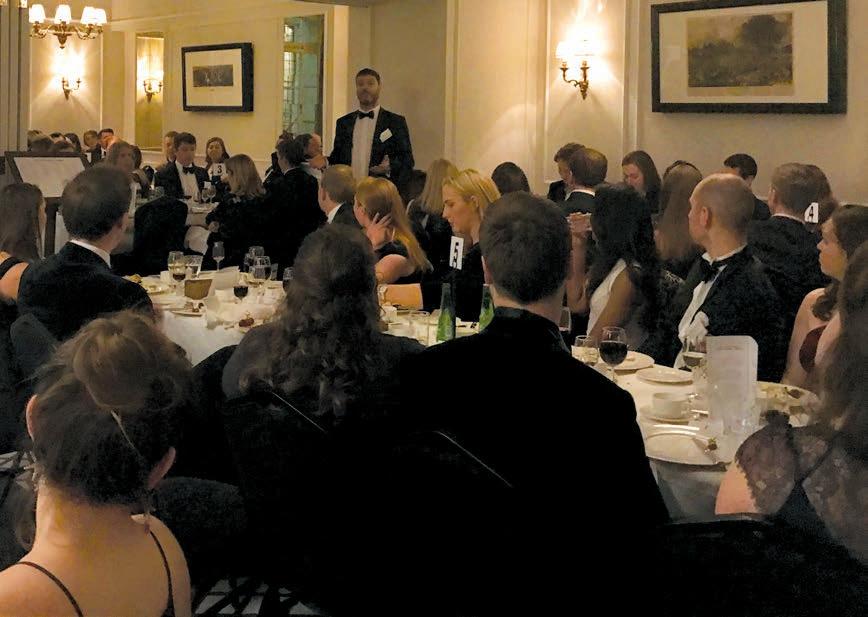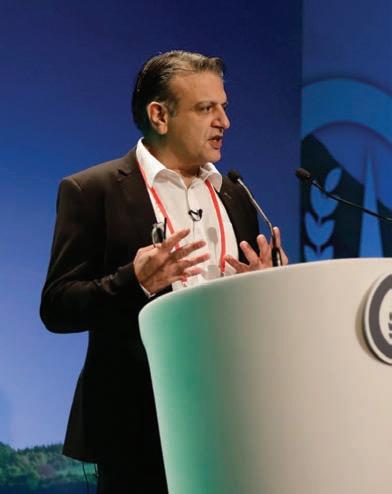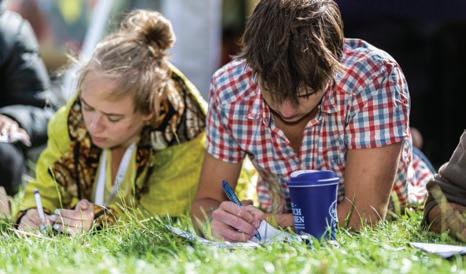
6 minute read
Rural Youth Project makes waves
Engaging rural youth
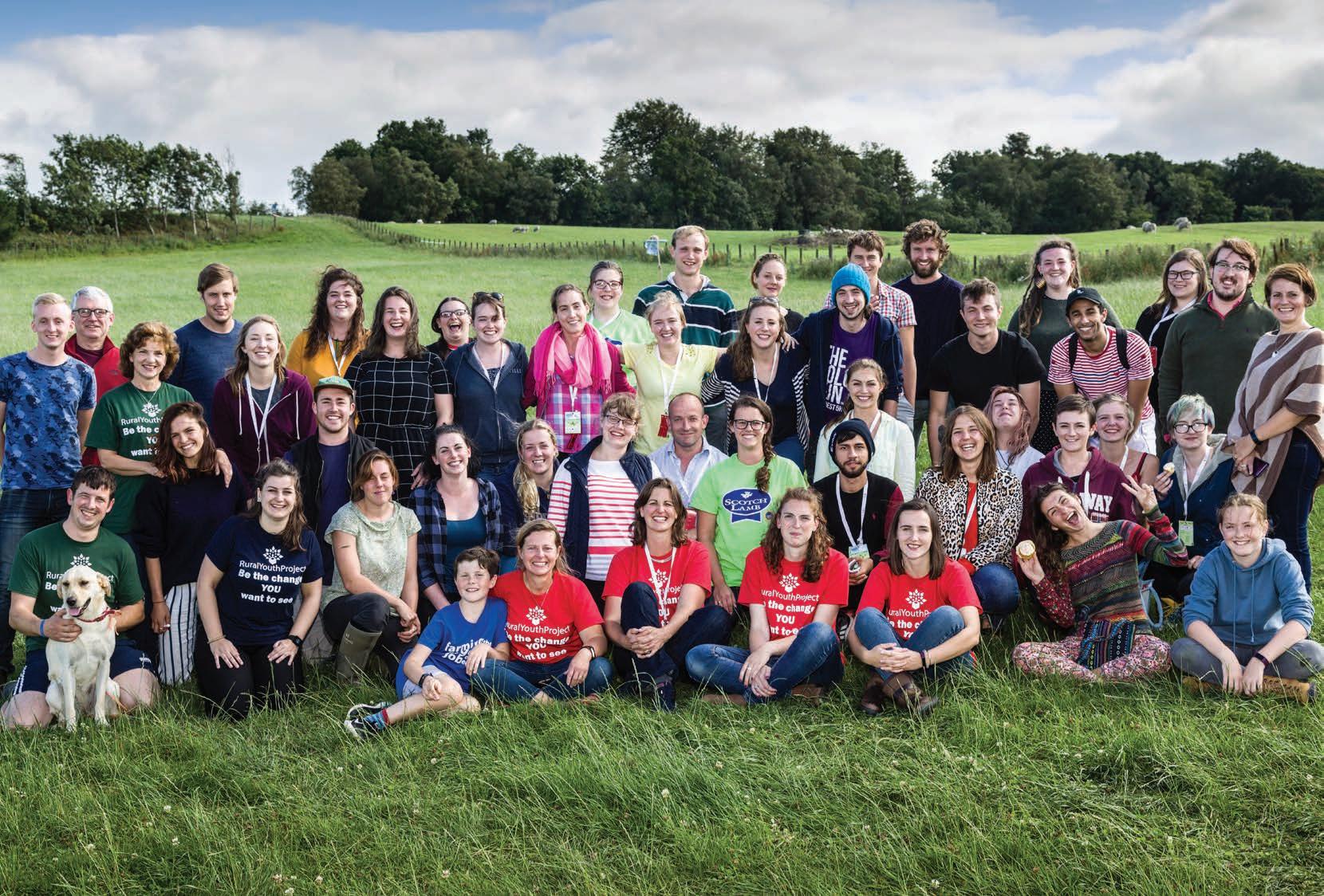
Keeping young people engaged in the countryside is a priority. A new initiative aims to champion fresh approaches to re-energise rural communities
YOUNG people leaving the countryside puts untold pressure on rural communities. So what can be done? A major new project is seeking answers and acting as a pathfinder for fresh approaches.
The initiative is the brain-child of Jane Craigie, a Farmers Club member and beneficiary of the Farmers Club Charitable Trust’s Windsor Leadership Trust programme, which helps aspiring leaders develop their vision and skills to enact positive change within their communities and industries.
Unlike agricultural leadership programmes the WLT involves individuals from a broad range of sectors, including the military, church, retail and health care. So far the FCCT has supported over 20 people from the UK’s agricultural sector to undergo the programme.
Inspired by her Windsor experience Jane teamed up with 30-year old colleague Rebecca Dawes to start the Rural Youth Project early in 2018. She describes it as a ‘side project’ from her main agrifood marketing business, its aim being to understand what challenges young people feel they have in rural areas and what can be done to encourage 18-28 year-olds to build their lives in the countryside.
Widespread issue
“There is a universal problem that almost all rural areas face, the loss of the young people to other places, most often to towns and cities,” she explains. “With the exodus comes the death of crucial local services like schools, public transport and GP surgeries; and once the young people and services go, it’s rare they return.
“I travel overseas a lot and perpetually see the consequences of losing young rural people – there is less creative thinking, less energy in local communities and a smaller pool of potential
14 • The Farmers Club Spring 2020 Rural Youth Project team (l-r) Susannah Pate, Rebecca Dawes (co-founder), Rebecca Rainnie and Jane Craigie (co-founder).
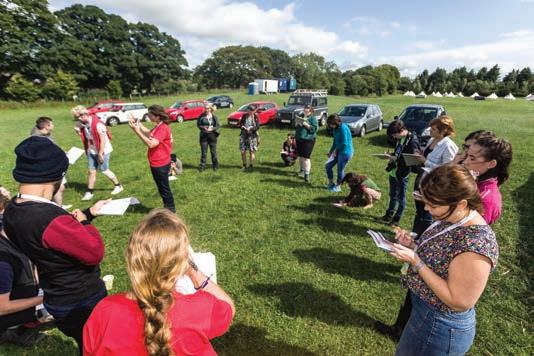
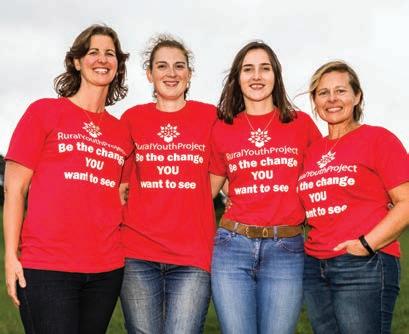
“I was propelled to start this project quite simply because we need to do all that we can to reverse this outflow, because young people are the lifeblood of rural areas and I believe that they have the natural ability to reimagine what rural places, land management and food production could be in the future.”
Running a small rurally based business herself – in north east Scotland - Jane employs a number of young people, so sees first-hand the frustrations, as well as the joys, of daily rural living.
Better understanding
“There was a lack of any current research on what rural young people felt were the positives and negatives of living in rural and remote places, so we decided to find out,” she explains.
The Rural Youth Project was launched with an online survey [see panel] and, in late 2018, the now, not-for-profit organisation, was awarded close to £300,000 of funding from LEADER* and Scottish Enterprise, the trade and industry arm of the Scottish Government.
The funding has allowed the Project to employ a full-time staff member, to run a number of Ideas Festivals, workshops and international learning journeys, to inspire talented young people to build their leadership, enterprise and activism skills.
During 2020, the team will be running a Rural Youth Ideas Festival in July 2020 in the Scottish Borders, a series of Big Rural Ideas workshops and learning journeys to Finland, Norfolk, Ireland and the USA. The team will also be ‘story-seeking and telling’ to share youth engagement and community ideas from all over the world and has started connecting young people with mentors within the network.
Jakob is 22 years old and lives in Uradale, Shetland Isles with his father, where they run mainly Shetland breeds, organically managed, as a complete “field to fork” business, supplying lamb and beef direct to wholesalers and retailers. Although Jakob, a trained butcher, has been busy building his businesses, he has experienced personal and professional obstacles living in such a remote location; the distance from the mainland being the dominant challenge. “Transportation costs severely impact and limit my business. It’s the same issue for my social life. Sport in Shetland is very big, and if you’re a part of a football or rugby team it’s a great social thing. I’d feel bad
for those not into these activities, because it can be limiting here for them.” With such a small community, friendship has no age limit and there are strong intergenerational ties. “The older people teach the younger ones skills for work, and because it is an island community, we all depend on each other to make things work. It’s not just all the old people who do everything, they depend on the young for work, but also to keep the community and economy going.” Despite the challenges, Jakob has a strong connection with Shetland. “The scenery is fantastic; the folk of Shetland are so nice and it’s so safe. I never worry about where I’m going. It’s not like London, there’s no knife crime, so it’s nice that I don’t have to be watching my back. Unless something was to drastically change, it will always be home.”
International attention
The initiative is gaining a lot of international traction, with organisations and policymakers from other countries asking for advice about engaging this hard to reach age-group and to partner the Project. Jane recently spoke at the OECD Rural Development Conference in South Korea.
“The power of our activities resonated with delegates from all over the world, because they share the same challenges and also recognise that the creative approach we are taking is having a really positive impact,” Jane comments.
The 2018 Rural Youth Project surveyed a total of 755 responses from the UK and overseas. The results highlighted that the inter-related issues of limited job opportunities, poor transport links and insufficient, or expensive, housing make living in rural places challenging for young people. Forty-five percent said they found it difficult to find work close to where they live and 60% wanted more access to activities to meet other young people in their areas. The results also highlighted that 94% consider digital connectivity essential to their future, in the context of 12% of respondents having no mobile coverage and more than a third citing internet speed of less than 4MB per second. Only 13% of respondents felt they had a say in the future of their local community, yet over 72% loved living where they do and were optimistic about t he future. “We also discovered the power of ‘cool’ businesses – those with a strong sense of purpose, a positive and inclusive attitude, creative workspaces and flexible working – in keeping young people engaged and loyal to rural businesses,” notes Jane. RURAL YOUTH PROJECT SURVEY RESULTS
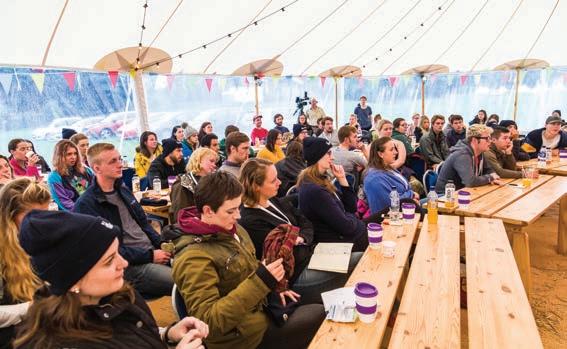
MORE INFO www.ruralyouth project.com Podcast: www.ruralyouth project.com/listen email: jane@janecraigie.com Farmers Club Charitable Trust: www.tfcct.co.uk Windsor Leadership Trust: www.windso rleadership.org.uk
*RYP funding has come from five LEADER Action Groups in Scotland – Perth & Kinross, the Outer Hebrides, Lanarkshire, Angus and the Scottish Borders.




